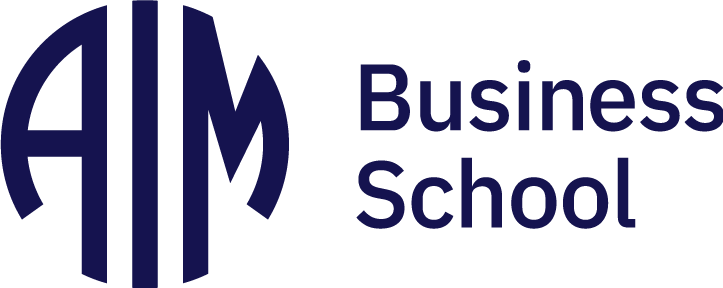AIM Business School offers a total of eighteen Units of Study.
Agile Management
This unit aims to provide students with a sound understanding of critical Agile concepts to improve and transform organisational operational models that enable improved competitive performance within a modern business context. You will evaluate the differences between Agile and traditional project management methodologies within a modern business environment and develop an Agile framework that can be deployed to achieve your organisation’s desired outcomes.
Business Decision-Making
This unit explores the theories and principles of strategic decision making. Over the duration of this unit, you will learn how to strategically analyse a challenge, developing awareness and competency in making thorough, insightful, effective, creative, and ethical strategic and key operational decisions in line with organisational resources and capabilities.
Business Economics
Introducing the underlying principles of micro and macroeconomics, this unit will help you appreciate and understand economic analysis and the frameworks required for making decisions that rely on economic concepts. You will gain an appreciation of how economists think and how integral economic thinking is to all management and leadership bodies of knowledge, including finance, people, marketing, operations, and strategy.
Business Law
This unit explores the increasingly complex, competitive, and global business environment and looks at why it is vital for managers to master high-level contract negotiation and management. There is a particular focus on large scale, high price projects that are of a sensitive nature, whether that is cultural, economic, or political. This unit aims to provide you with the knowledge and tools to be able to confidently move in this area of contracts and contract law.
Research in Business
This unit aims to introduce you to the foundations of business research by examining the core concepts, methods, and values involved. You will gain the confidence to make evidence-based insights as you explore both qualitative and quantitative research methods and the appropriate frameworks for the application of each to researching business problems.
Business Strategies
This unit aims to provide you with both a theoretical understanding of strategy and its practical implementation in order to boost your confidence and critical thinking skills. You will learn the strategy process, including how to use the tools and techniques of business analysis and decision-making to develop and implement competitive, value-creating strategies at organisations.
Cybersecurity Governance
This unit aims to equip managers and business leaders with the practical understanding and knowledge required to inform strategic and operational decision making to drive value through the effective use of cloud-based technologies. In addition, this unit will support those from non-technical backgrounds, and in non-technical roles, to better identify and understand key risks and threats brought about through an increasingly digital operating environment.
Emerging Technologies and Digital Citizens
This unit aims to equip managers, leaders, and professionals with the critical understanding and practical knowledge required to inform decision making relevant to digital strategy, transformation, and operations. You will learn to successfully identify, understand and interpret critical trends affecting industries and gain a better understanding of the dynamic that digital teams are operating within, a foundation that will enable more effective leadership and decision-making.
Entrepreneurship
Entrepreneurship is looking at business with a focus on opportunities, creativity and innovation, together with creating wealth in all its forms. Entrepreneurs are risk taking individuals who seek to bring about change and new opportunities for themselves and others, playing an important role in commerce, trade, and economic growth. This unit examines the cohesive process of Entrepreneurship including business modelling, planning, idea development, innovation, creativity, and risk management.
Human Resource Management
This unit aims to deliver a fundamental understanding of the theories and principles of human resource management in an organisation. By examining the links between business strategy and human resource management and some of the techniques used, you will learn valuable concepts and practices for workforce planning, strategic staffing, training and development, performance management, and evaluating the effectiveness of the HRM function.
International Business
This unit explores the theory and practice of global enterprise, with the aim of boosting your abilities and confidence in dealing with international business conditions. You will develop awareness of the scope and complexity of micro and macro considerations that bear upon the international business environment. You will become familiar with strategies that help you compete effectively and develop plans that match those strategies with environmental conditions.
Managing Innovation and Sustainability
Innovation is key to the sustainability of an organisation. Therefore, strategic leaders must develop and maintain a fearless culture of enquiry and creativity. Such leadership demands an understanding of the interactive elements that contribute to the effective and sustainable organisation: its structure, people, politics, symbols, and cultural nuances. This unit will provide with a thorough and advanced understanding of how to lead innovation in your organisation.
Managerial Finance
This unit introduces you to essential financial management and accounting principles, from the art of budget development to capital investment techniques. Through an ethical lens of responsible financial management, you will learn to leverage this knowledge to inform operational and strategic decisions that contribute to organisational success.
Marketing Management
Meeting the needs and wants of customers requires effective business systems and practice. This unit explores the foundations of marketing and will introduce you to a series of frameworks that will enable you to identify your customers, analyse the nature of the competitive and industrial environment, and develop and evaluate the specifications of a marketing plan based on accurate market research and analysis.
Operational Improvement
Addressing operations in organisations across the globe, this unit looks at how they are assimilating quality assurance with holistic systems management practices. It will encourage you to consider approaches to operational improvement while taking a systems view and emphasises how the strategic alignment of operations is essential for the long-term success of organisations in gaining competitive advantage.
Organisational Change Management
This unit aims to provide a grounding in change management in both strategic and in operational contexts. Through the course, you will examine organisations, leaders, people and environmental factors as well as the organisational context for change.
Project Management
Learning to become comfortable and competent in addressing major management issues and decisions in a project-based organisation is the overall objective of this unit. You will develop your understanding of the principles of project management from a middle to senior managerial perspective and develop skills to plan and manage projects with a range of teams.
Strategy, Governance and Sustainability
This capstone unit for the MBA program extends and enhances your ability to think and act as an executive leader. It investigates how to lead an organisation through the analysis, strategic positioning, concept application, and decision-making phases of corporate strategy that achieve organisational goals. You will undertake a series of self-insight tools to increase your self-awareness about your personality and predispositions and how it may affect your executive leadership effectiveness.
The Art of Leadership
As much about self-reflection as it is about learning strategies to manage others more efficiently, this unit will boost your awareness and help you think objectively about your capabilities as a leader. Leaders and managers achieve organisational objectives through the people they lead, so if you can be better at engaging, motivating, and developing people, you’ll stand to increase your own productivity and that of your organisation as a whole.
Superseded Units
The following units of study are no longer offered by AIM Business School. For current students who have previously completed these units, they can still be used as valid credit towards our qualifications.

